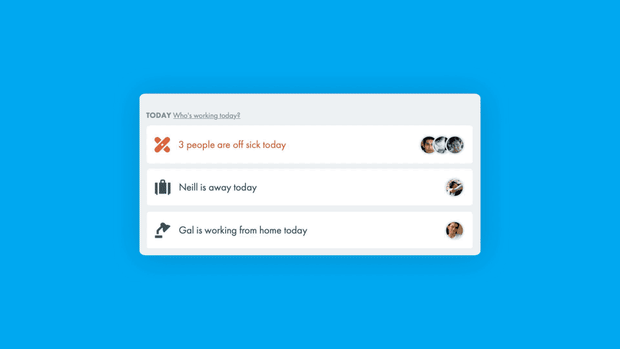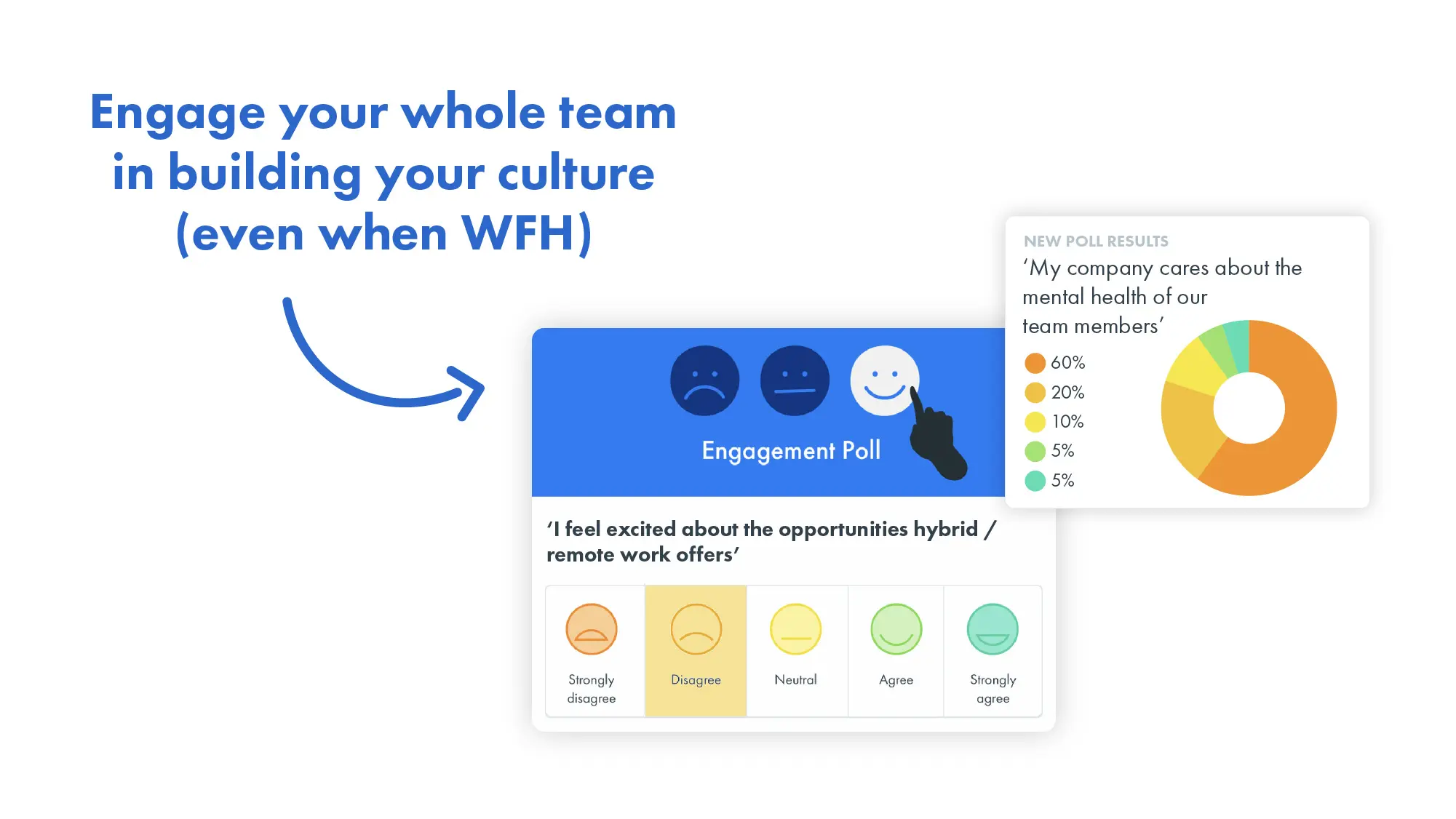How to write an attendance policy for your small business + free template

It’s a given that your team members should show up for work, and I’m a big believer in trusting your employees to do their best work. However, I know from experience that if you don’t set clear expectations, sooner or later someone will take advantage of it.
How do you prevent this? My advice would be to craft a well-made attendance policy. It protects you in case you’ll ever struggle with attendance issues, and creates an atmosphere of fairness and accountability.
In this post, I want to get into how to make an effective attendance policy that clears the air on this.
You can also have a look at the attendance policy example here below to take inspiration for your own policy.
Attendance policy template
Why an attendance policy?
Our commitment to punctuality and consistent attendance is vital to the success of our small business. This policy outlines our expectations regarding attendance, emphasising the importance of being present and on time for work to ensure our operations run smoothly.
Scope
This attendance policy applies to all team members within our small business, regardless of their role or employment status.
Key points
Effective collaboration among team members is crucial for our small business. To facilitate this, we expect all employees to be punctual and adhere to the agreed-upon work schedule with their manager. In cases of occasional absences or tardiness, a valid reason should be communicated.
Consistent tardiness or absenteeism can disrupt the workflow and create additional burdens for colleagues. Such behaviour may lead to a record of poor attendance and may result in progressive disciplinary actions.
Defining absenteeism and tardiness
Absenteeism: Frequent absence from job responsibilities, including regular work absences or excessive sick leave without providing appropriate documentation, such as doctor's notes.
Presenteeism: Remaining at work beyond the scheduled hours, even when overtime is not required. This may lead to overwork, affecting productivity and job satisfaction. We encourage employees to adhere to their established work schedules.
Tardiness: Arriving late, taking longer breaks than allotted, or leaving work prematurely without justification. While we embrace and encourage flexibility, this shouldn’t hinder your overall performance or that of your team. Talk to your manager to discuss your preferred work schedule, and ensure it does not interfere with the team’s needs.
Unforeseen absences
If you are unable to come to work, promptly notify your manager. In cases where your manager is in a different time zone, contact HR instead. For unplanned absences, use your remaining PTO or sick leave to cover the time off, and report it promptly in our HR software. Failure to report or excuse an absence for more than three consecutive days will be considered job abandonment. If you need to leave work early on a particular day, inform your manager in advance.
We understand that certain circumstances may prevent timely reporting. Valid reasons include serious accidents or family and acute medical emergencies. In such cases, we may require documentation, such as doctor's notes, and classify the absence as "excused."
The following list, though not exhaustive, provides examples of reasons we do not consider excused absences:
- Oversleeping
- Personal detours on the way to work
- Delays due to traffic or public transportation issues, excluding situations resulting in road closures
- Poor weather conditions, except for extreme situations like blizzards, hurricanes, and floods
- Unauthorised holidays
Manager's responsibility
Managers are responsible for monitoring the attendance of their team members. If a team member consistently demonstrates lateness or absenteeism, managers should arrange a meeting to discuss the issue. This conversation should explore potential scheduling issues or personal life-work balance challenges. Solutions like flexible hours, remote work options, or time management training may be considered. If there is suspicion of a mental health issue contributing to attendance problems, encourage the team member to contact our designated mental health professional.
In cases where abuse of sick leave or willful tardiness is suspected, managers should inform HR and initiate a progressive discipline process.
Disciplinary action
If a manager suspects that an employee is abusing sick leave, the submission of doctor's notes may be required to avoid the initiation of progressive disciplinary actions. Corrective counselling will be the initial step for unintentional tardiness. However, if corrective counselling proves ineffective, or if willful tardiness negatively impacts work, disciplinary measures may escalate, potentially leading to termination.
Please note that unexcused and unreported absences will not be compensated as hours worked.
Disclaimer
This policy serves as a general guideline and reference for our small business. It may not encompass all local legal considerations and is not a legal document. Neither the author nor our business assumes any legal liability resulting from the application of this policy.
Why attendance policies are crucial
An attendance policy sets clear expectations for everyone on your team in terms of when and where they are supposed to work.
Having clear attendance rules written down means you don’t leave things open to interpretation — your team knows what is acceptable and what is not.
This not only protects you from attendance issues, but it ensures no favouritism or unjustified exceptions are being made that may create resentment within the team.
When the rules regarding attendance are clear and apply equally to everybody, they create a workplace culture of fairness that can really help your employee satisfaction and morale.
The building blocks of an attendance policy
Employee attendance policies largely follow the same format and generally include several common key areas. Here are just a few things you’ll need to have in the one you make for your small business:
- Purpose statement: This is the part where you explain why the policy exists, mainly for transparency reasons. It sets the right tone and makes it clear that you make attendance a priority.
- Scope: You’ll also want to spell out who the policy applies to, whether it’s only full-time employees or includes everyone on the team, including the part-time and contract workers.
- Attendance standards: What counts as tardiness? If an employee shows up to work late, how should it be reported? What are the consequences if an employee has a few too many unexplained absences? This is where you answer these questions.
- Time-off requests: You may also spell out how you deal with planned vacations and leaves of absence due to medical reasons, unless you already explain this on another policy.
- Holiday policies: Make procedures for how holidays are handled, either as part of your attendance policy or as a separate Holiday policy. Are holidays paid? Unpaid? Do you have a bank holiday policy that could apply? Clear up these questions now to avoid future disputes.
- Sick leave: you may want to add another layer to this with a sickness policy for example.
How your attendance policy can impact your company culture
The return-to-the-office debate has sparked a conversation about the balance of power between employers and employees. A conversation about flexibility vs. rigidity would not be amiss here, or maybe it would be time to implement a hybrid working policy like the one we have at Charlie.
There’s also transparency to think about.
Whatever rules you decide, they should be clear, they should be equitable, and they should be openly communicated to everyone.
Everyone should know what they should expect in terms of their employee attendance, and what they should expect in return.
Lastly, your employee attendance policy should be inclusive and accommodate different needs and lifestyles (in line with your diversity and inclusion policy). A person in a wheelchair or a single mother may not necessarily be able to meet the same attendance records as an able-bodied person with no children.
You could also perhaps think about putting forward-thinking policies such as a menopause policy in place to help your team members in need.
Setting the right expectations
The rules you set in your attendance policy only have power if you set consequences for breaking them.
This might start with first-time verbal warnings. If the problem is not addressed after several conversations, it might end with written write-ups and eventually termination.
It’s not all stick though, there should be carrots as well. Using an incentive like positive reinforcement can help the implementation of your attendance policy go much smoother.
Consider giving awards for good attendance like bonuses or extra paid time off for employees who show up on time consistently.
Then there’s documentation to consider. Keep a record of all attendance-related actions and make sure they’re taken down in writing.
Or use HR software like Charlie to track all of your team’s absences and time off.

Keeping team members accountable
Accountability is a two-way road.
Your employee attendance policy works both ways - both for you and for the team members who work with you.
You have the right to expect that your team members are expected to show up on time. You, in turn, should provide your employees with the appropriate tools they need to abide by the rules.
Having an employee time tracking software like Charlie can be extremely useful in implementing your attendance and time off policy. Here are a few ways having an automated employee time tracking platform helps with that:
- Automated tracking: The platform automates tracking your employee’s time off, so you can spend more time leading your team, and less time managing.
- Alerts and reports: Charlie can automatically flag any employees who report frequent absences with attendance reports, so you can have the necessary conversations with them when you need to.
- Accessibility: Transparency is key for a successful attendance policy, and Charlie allows your team members to easily access their attendance records so they can take ownership of their attendance.

Adapting and evolving your policy
Your employee attendance policy is a living, breathing thing that grows and changes as your company does.
Here are some ways you can keep it current, relevant, and effective:
- Regular reviews: Host annual or bi-annual reviews so you can assess whether or not your policy is effective, and how your team has been making use of it.
- Employee feedback: At the end of the day, your employees are going to be the ones following your attendance policy. So, how can you know whether or not your attendance policy is working? Why not ask them? Make use of employee feedback surveys or focus groups and ask them what they think about the employee attendance policy rules. You can use an HR tool like Charlie to roll out surveys in a couple of clicks.

- Legal updates: The rules behind your attendance policy should evolve to be compliant with UK employment laws, to protect both your business and your employees.
Attendance policy FAQs
1. What are the legal requirements for an attendance policy in the UK?
There are no specific requirements for attendance policies in the UK, but your attendance policy must stay compliant with other employment laws such as the Working Time Regulations 1998. I or another HR advisor at Charlie can guide you through making your own attendance policy, including making sure it’s compliant with UK labour law – we can also help you implement other HR policies if you so desire.
2. How can I enforce an attendance policy without creating a culture of mistrust?
The most important way you can use your attendance policy to create a positive work culture is through transparency and communication. Outline the policy, state why it benefits your employees and the organisation as a whole, and spell out the consequences for not adhering to it.
3. What are some common pitfalls to avoid when implementing an attendance policy?
Lack of clarity, inconsistency in enforcement, and failure to adapt the policy over time are good ways for your attendance policy to foster resentment in your team.
Create an attendance policy that is fair for everyone
Having a well-thought-through attendance policy helps your business stay legally compliant and contributes to your team’s work culture.
You can start a free call with an HR advisor today to get counsel on how to make your attendance policy. While we’re at it, here’s a downloadable attendance policy template to get you started, feel free to take what we’ve come up with and tailor it to fit your needs.



